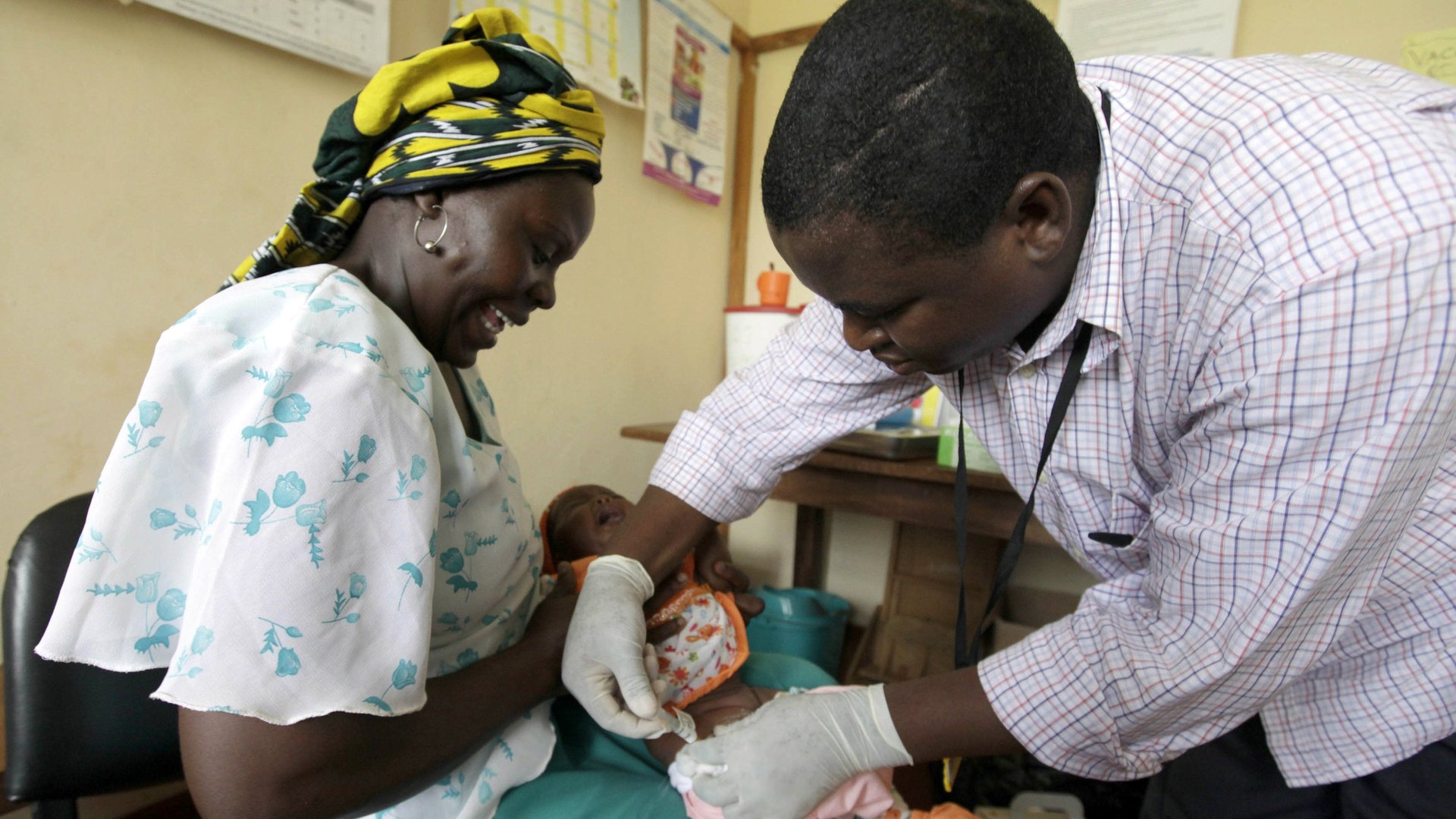Africa is eliminating malaria faster than expected
On World Malaria Day (April 25), the World Health Organization (WHO) came bearing good news: Six African countries could be free of malaria by 2020. The countries are Algeria, Botswana, Cape Verde, Comoros, South Africa, and Swaziland.


On World Malaria Day (April 25), the World Health Organization (WHO) came bearing good news: Six African countries could be free of malaria by 2020. The countries are Algeria, Botswana, Cape Verde, Comoros, South Africa, and Swaziland.
Malaria remains a major threat in Africa, with 90% of malaria deaths in 2015 in sub-Saharan Africa, but there is reason for hope. Data from the World Malaria Report 2015 shows malaria mortality rates have fallen by 66% among all age groups and by 71% among children under 5 in Africa since 2000.
The progress made in the fight against malaria, WHO says, has been due to widespread deployment and use of “insecticide-treated bed-nets, indoor residual spraying, rapid diagnostic testing and artemisinin-based combination therapies.”
In parts of Africa, the fight against malaria has often been held back by misdiagnoses of the disease, but WHO says, over the last decade, diagnostic testing “has made it easier to swiftly distinguish between malarial and non-malarial fevers, enabling timely and appropriate treatment.”
The disease still poses a major threat worldwide, with 214 million new cases reported in 95 countries in 2015, and half of the global population still at risk of infection.
To defeat the disease, the WHO has set ambitious targets in its Global Technical Strategy for Malaria 2016–2030, which provides “a technical framework for all malaria-endemic countries” as they work towards control and elimination of the disease. The strategy aims to reduce malaria cases and mortality rates by at least 90% by 2030, and also prevent a resurgence of malaria in all countries that are malaria-free. Initially, the strategy set a target of eliminating local transmission of malaria in at least 10 countries by 2020, but the WHO says that target has doubled, with 21 countries on course to achieve the goal. In total, the WHO is aiming to end local transmission of the disease in 35 countries by 2030.
New technology will be crucial to eliminating malaria, as mosquitoes grow increasingly resistant to insecticides and indoor residual spraying. In this regard, there is good news. Last year, for the first time ever, a malaria vaccine received a positive scientific opinion from the European Medicines Agency and the WHO says it has already recommended pilot projects for the vaccine in several African countries, “which could pave the way for wider deployment in the years ahead.”
While the total elimination of malaria remains a goal for Africa, it is already a reality in Europe.